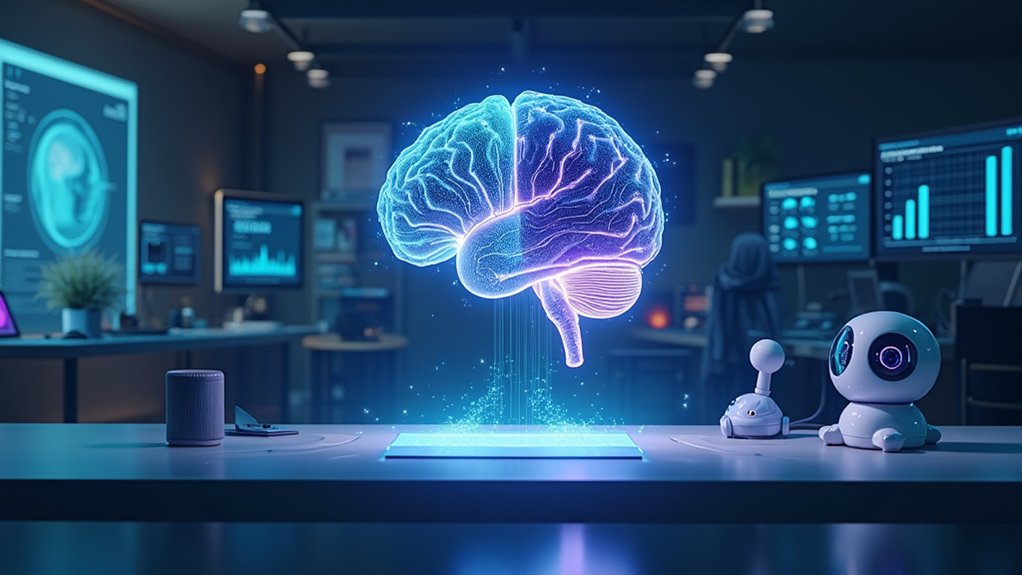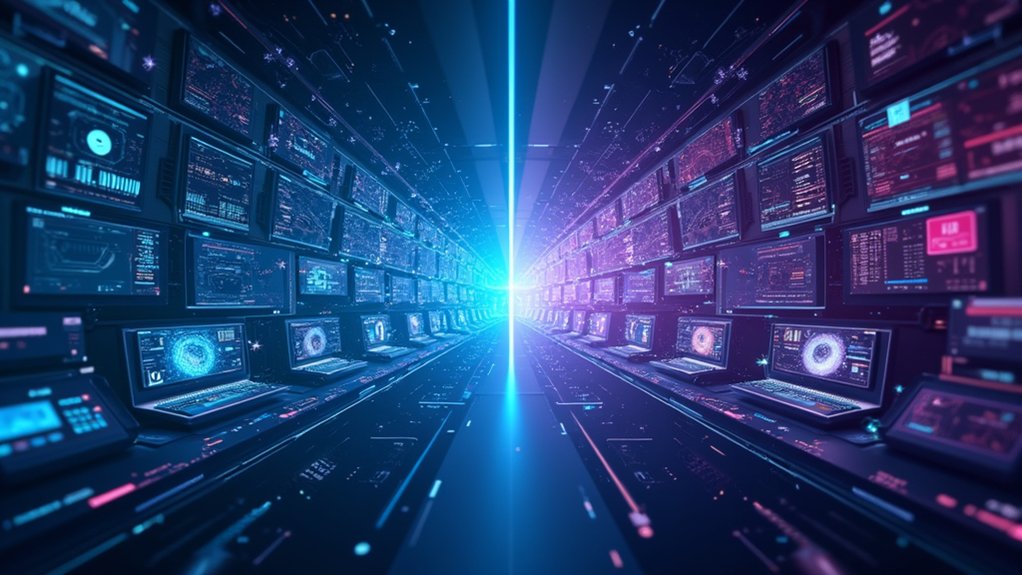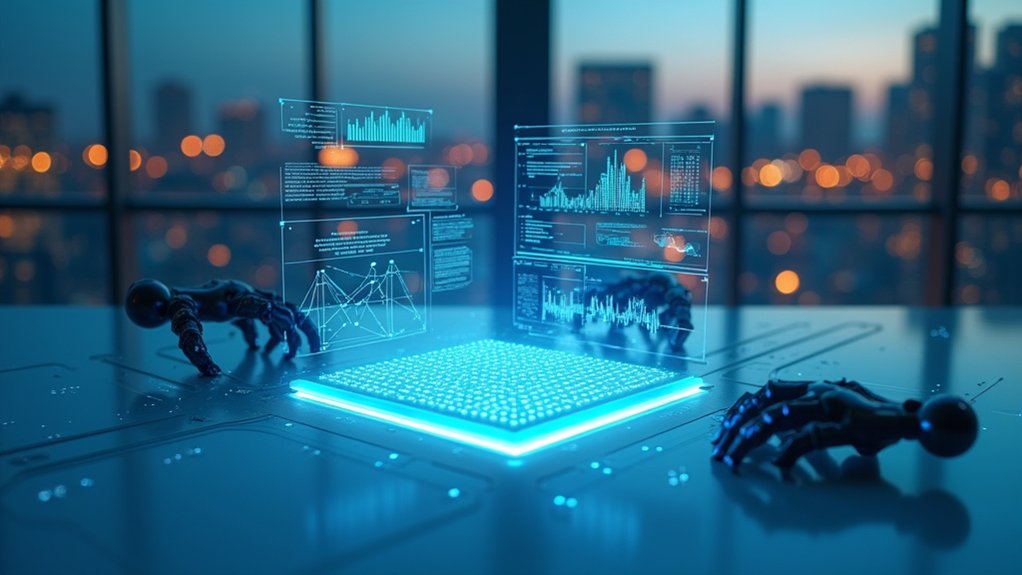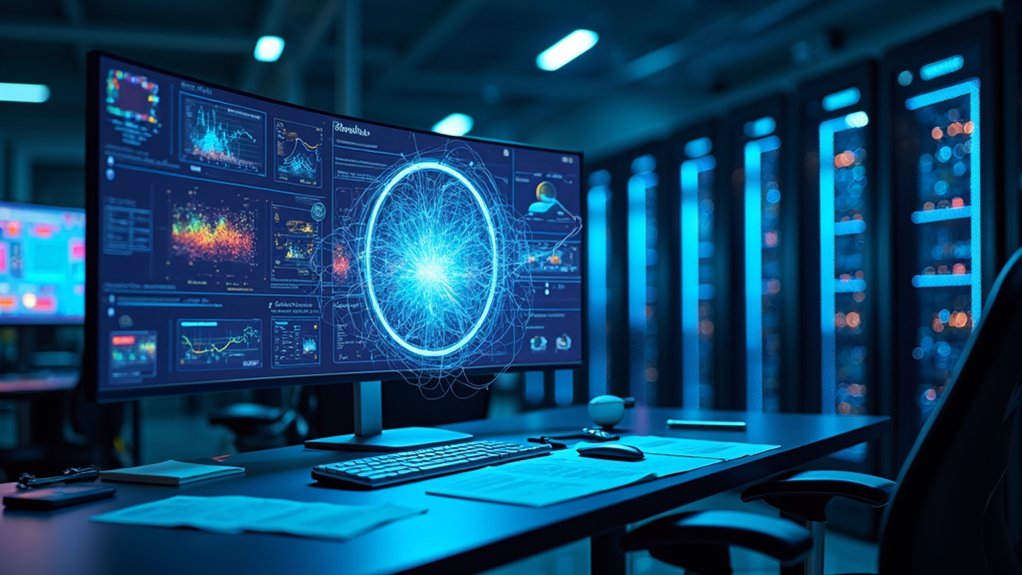AI augmentation combines human abilities with machine power. This approach doesn't replace people but makes them more effective through partnerships with technology. Systems using machine learning, natural language processing, and computer vision enhance decision-making across industries. In healthcare, AI helps doctors diagnose diseases and plan treatments. In business, it streamlines customer service and improves marketing. Despite challenges like data privacy, AI's future lies in making human intelligence stronger, not obsolete.
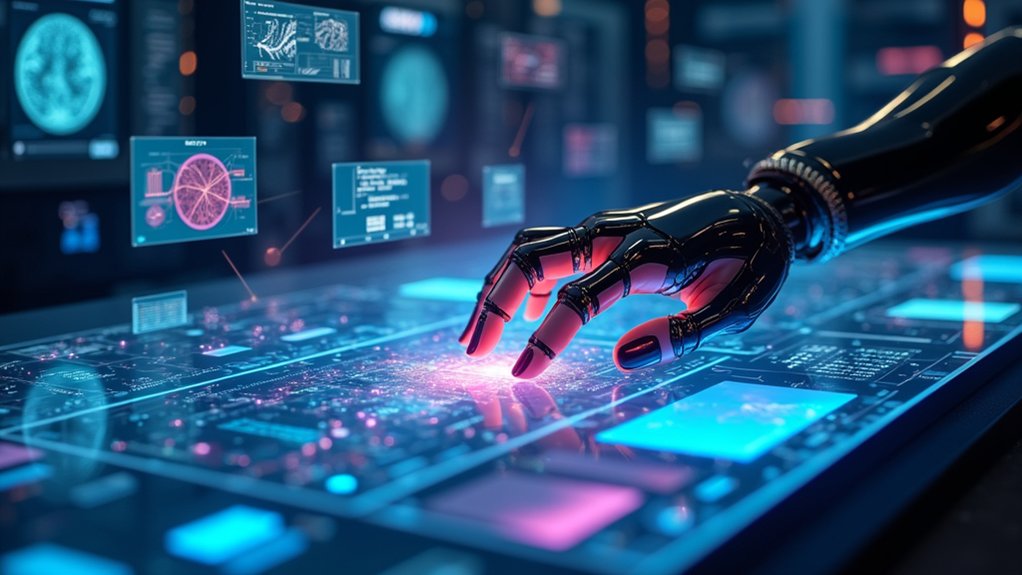
Almost every industry today is exploring how artificial intelligence can boost human capabilities rather than replace them. AI augmentation focuses on partnership between humans and machines, where AI tools support and enhance human decision-making rather than taking control. This approach combines human creativity and judgment with a computer's ability to process huge amounts of data quickly.
AI augmentation relies on several key technologies. Machine learning helps computers find patterns in data. Natural language processing lets people talk to computers using everyday language. Computer vision helps machines understand images and videos. These tools work together to create systems that make humans more effective at their jobs.
AI augmentation combines machine learning, natural language processing, and computer vision to enhance human performance in the workplace.
In business, AI augmentation is changing how companies operate. Managers use AI insights to make better decisions. Customer service teams work alongside AI chatbots to help more people faster. Marketing teams use AI to create personalized recommendations for customers. Banks use these systems to spot potential fraud quickly. AI also dramatically improves operational efficiency by automating routine tasks that previously required significant human resources.
Healthcare professionals are using AI to improve patient care. Doctors use AI to help diagnose diseases and plan treatments. AI systems can analyze medical images to find early signs of illness. Researchers use AI to speed up the discovery of new medicines. These tools help medical teams provide more personalized care. AI technology is revolutionizing the healthcare industry with diagnostic accuracy that significantly enhances physicians' ability to identify diseases.
In education, AI is creating new learning opportunities. Students follow customized learning paths based on their unique needs. Teachers use AI to grade assignments and provide feedback quickly. Special tutoring systems offer one-on-one help to students who need extra support. The effectiveness of these AI systems depends on quality data for generating accurate insights and recommendations.
Despite its benefits, AI augmentation faces challenges. Keeping data private and secure remains essential. Developers must work to prevent bias in AI systems. Organizations need to find the right balance between automation and human expertise.
The future of AI augmentation looks promising. As AI systems become more intuitive and adaptable, they'll work more smoothly with humans across more fields, including creative and artistic areas. The goal remains clear: to enhance human intelligence, not replace it.
Frequently Asked Questions
How Does AI Augmentation Affect Employment in Creative Industries?
AI's impact on creative jobs shows two sides.
Studies predict major job losses, with the UK creative sector potentially losing 900,000 jobs by 2030.
However, new roles like AI prompt engineers and trainers are emerging.
The workplace now demands different skills, including empathy and critical thinking.
For those who adapt, AI tools boost efficiency, saving creators about 11 hours weekly while enabling faster idea generation.
Can People Develop Unhealthy Dependencies on AI Augmentation Tools?
Research shows people can develop unhealthy dependencies on AI tools.
Studies reveal 17-24% of adolescents experience AI dependence. Mental health issues like anxiety and depression increase this risk. Users might rely on AI to escape problems or replace social interactions.
These dependencies can lead to decreased critical thinking skills and weaker problem-solving abilities. Privacy concerns and potential job losses add to the negative effects of overreliance on these technologies.
What Privacy Concerns Arise From AI Systems That Monitor Cognition?
AI systems that monitor cognition raise several privacy concerns.
These tools collect vast amounts of personal data often without users' full knowledge. There's limited transparency about how this cognitive information is used or shared.
Continuous monitoring can feel like invasive surveillance, with 81% of consumers worried about misuse of their data.
Additionally, there's risk of data breaches and potential discrimination based on cognitive patterns the AI detects.
How Are AI Augmentation Benefits Distributed Across Socioeconomic Groups?
AI augmentation benefits aren't spread equally across society. Studies show higher-income workers gain more productivity boosts from AI tools.
Nearly 40% of global jobs face AI exposure, with advanced economies seeing 60% of jobs affected. Wealthier countries have better infrastructure to harness AI's advantages.
This uneven distribution may widen income gaps. Education in analytical thinking and technical skills could help bridge this divide, but immediate benefits favor already-privileged groups.
Will Ai-Augmented Humans Outcompete Non-Augmented Individuals in Education and Careers?
Evidence suggests AI-augmented individuals will likely outperform non-augmented peers.
Data shows AI-assisted workers are 35% more productive, while 78% of companies prefer hiring candidates with AI skills.
In education, AI tutors improve outcomes by 20-30%.
This advantage creates concern, as 65% of workers fear job displacement.
